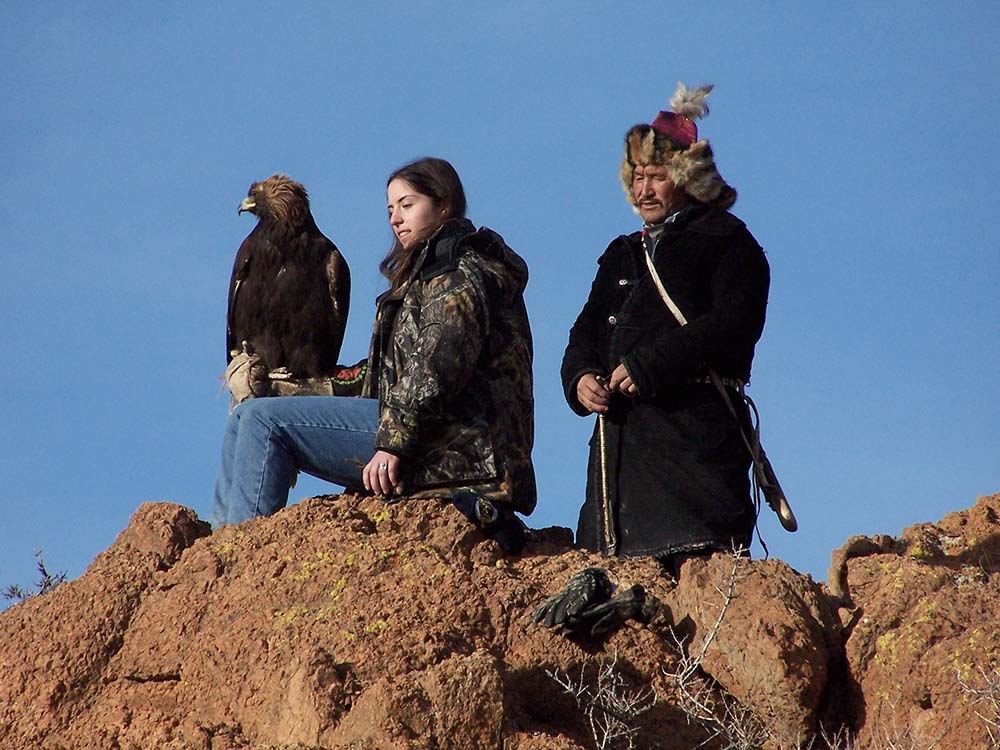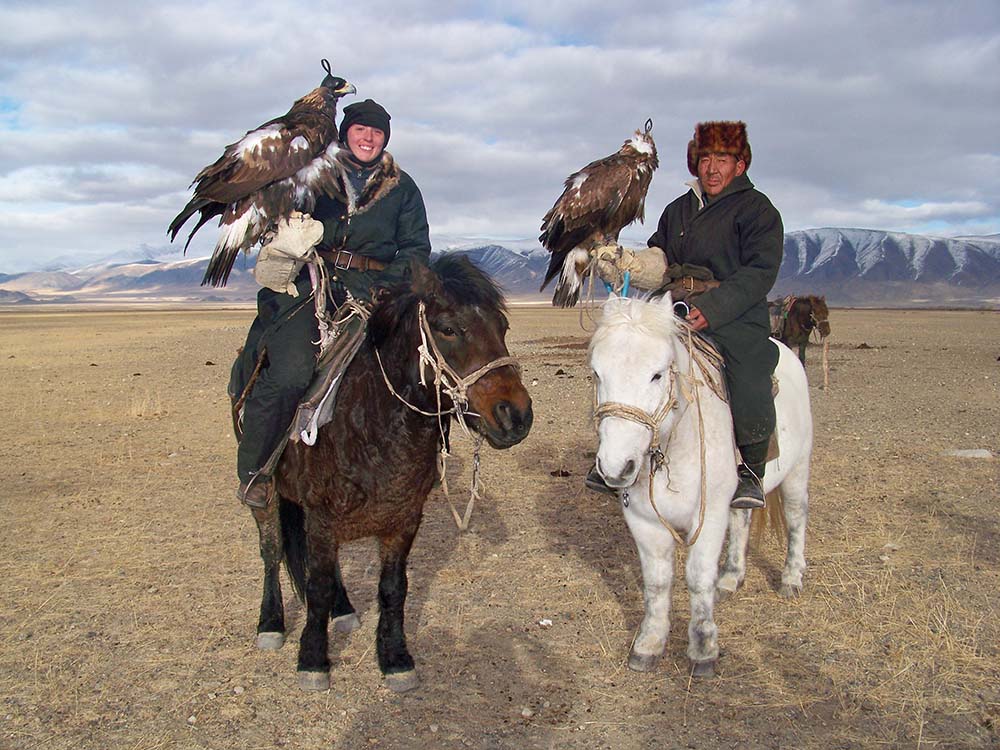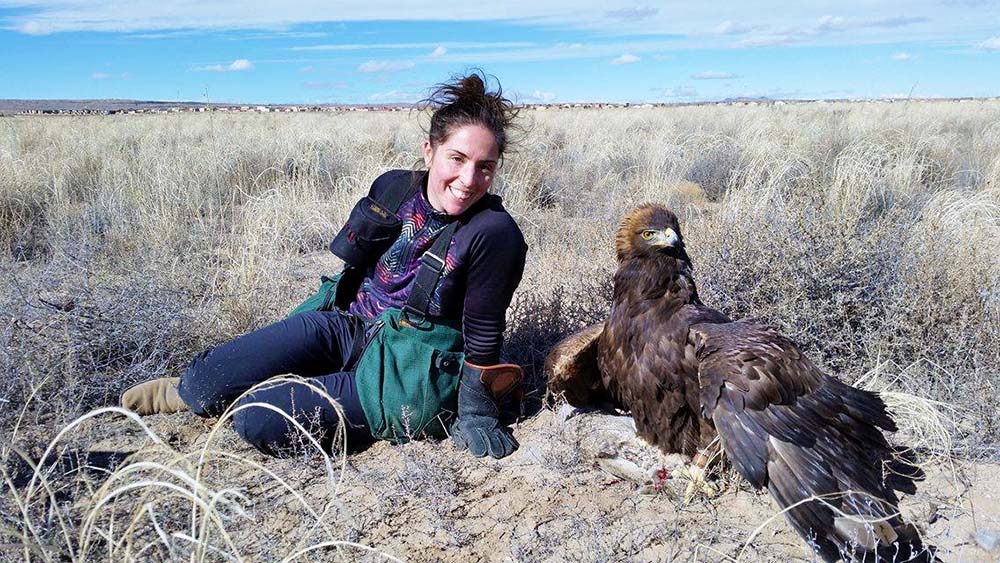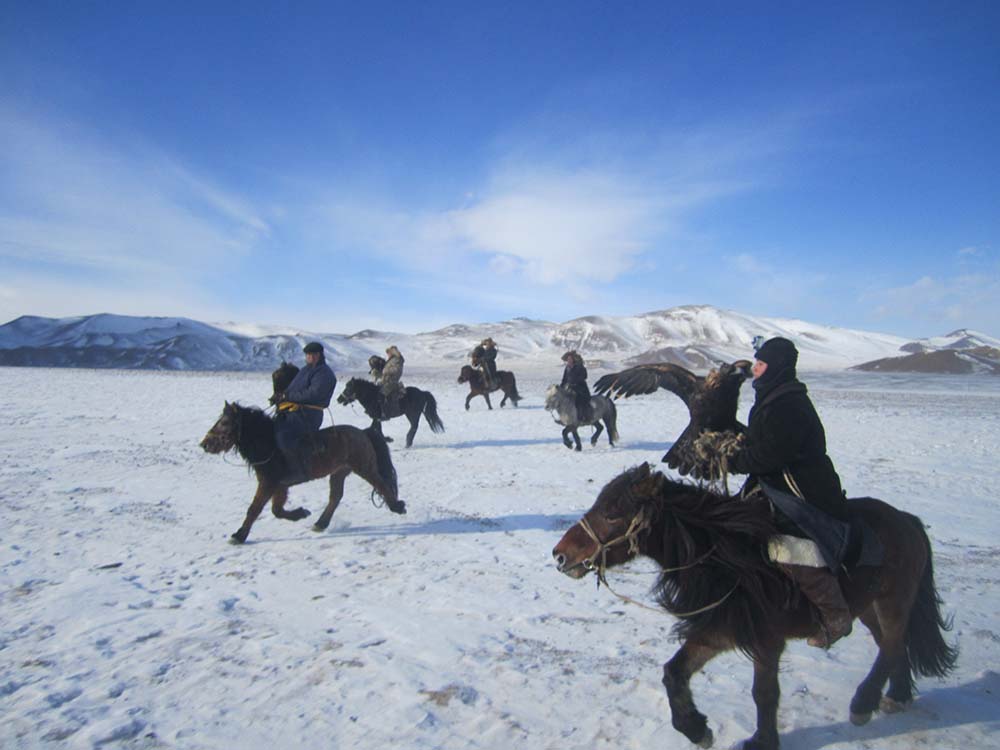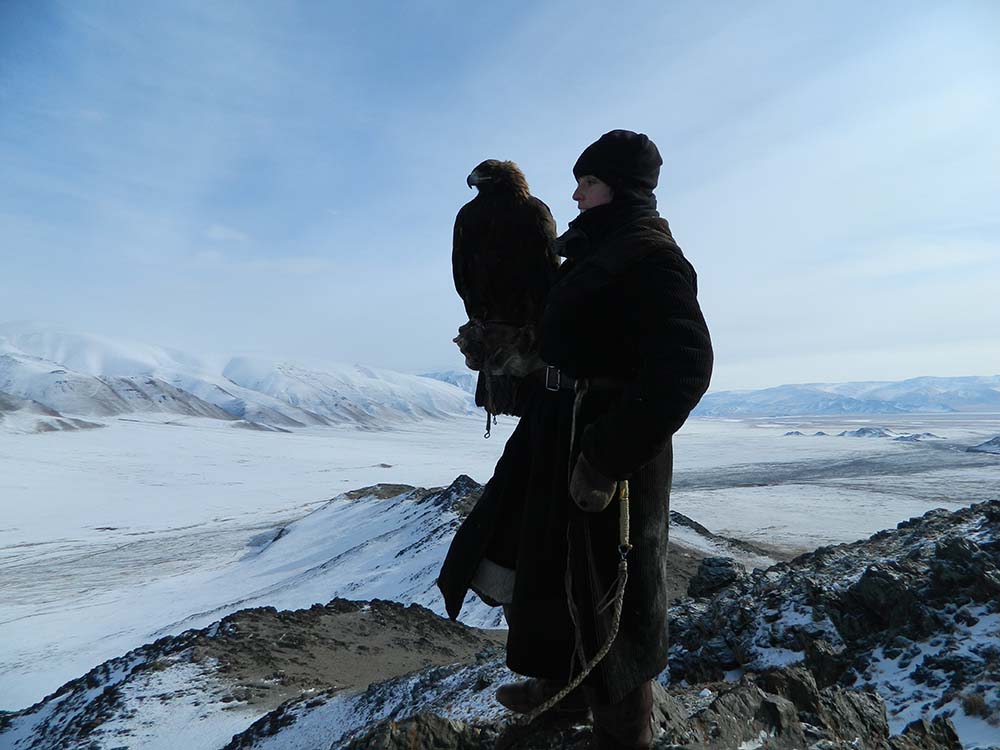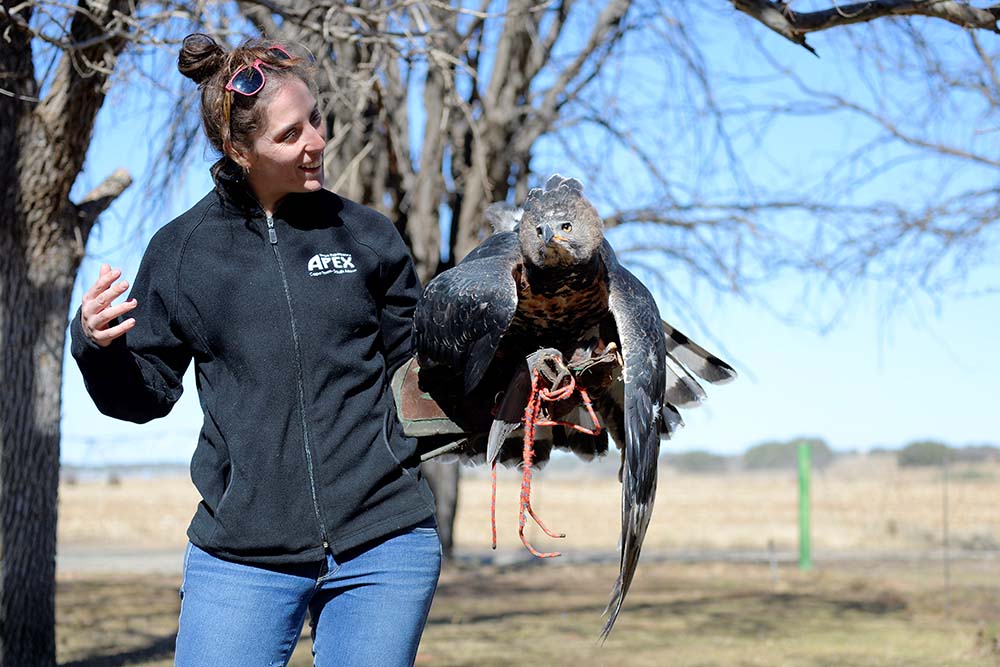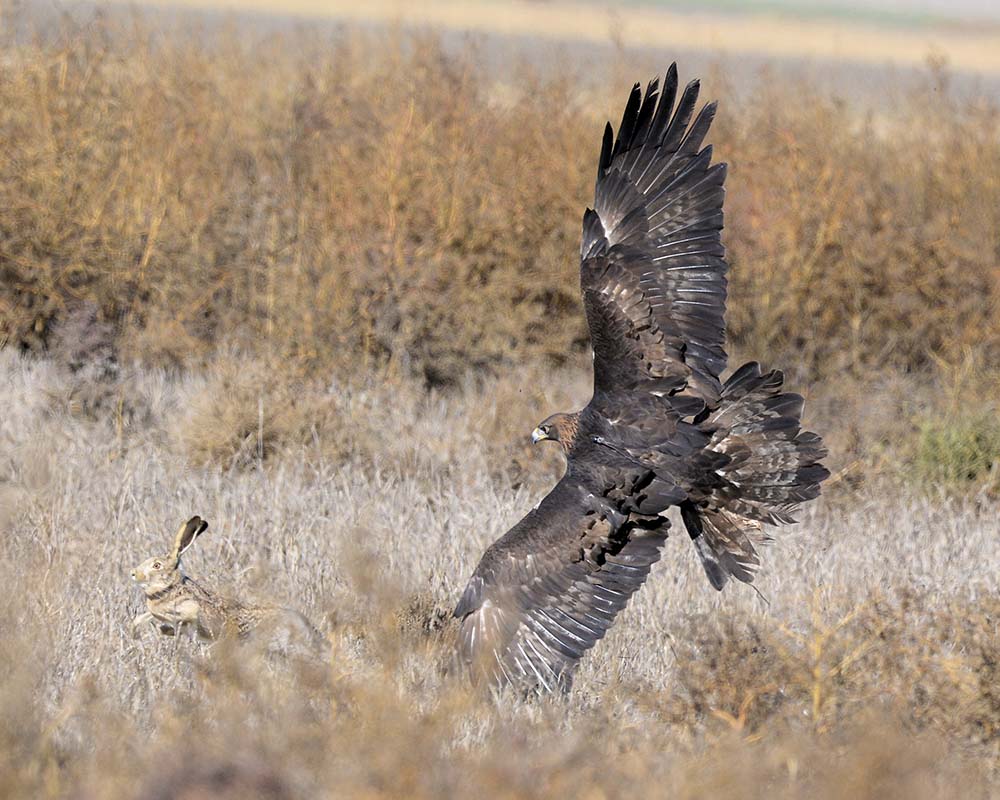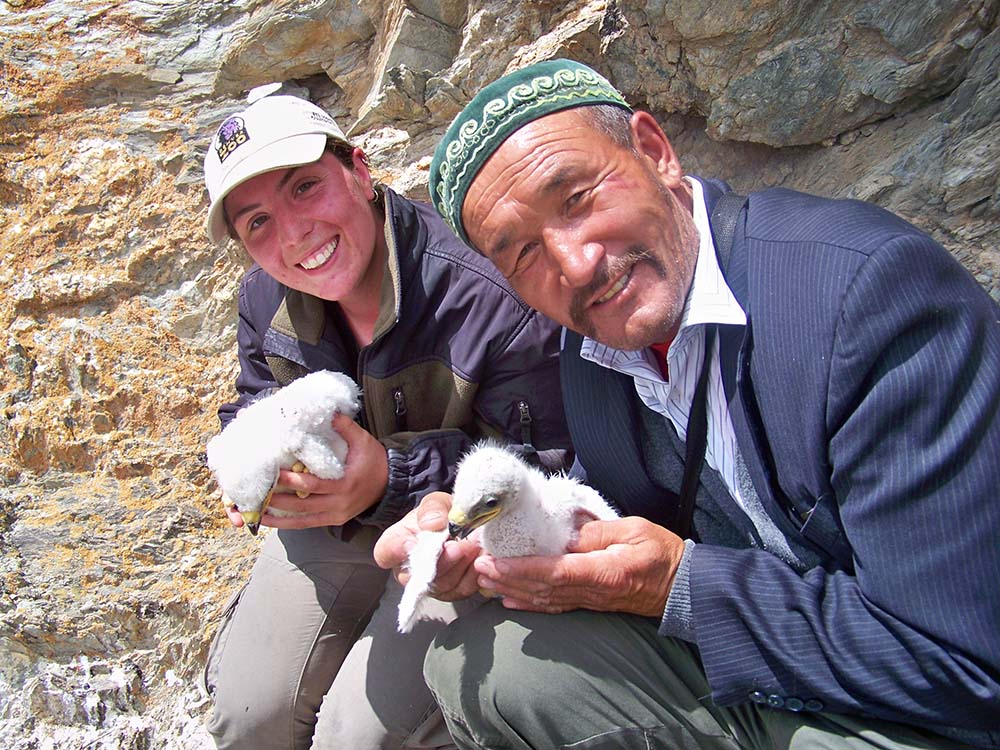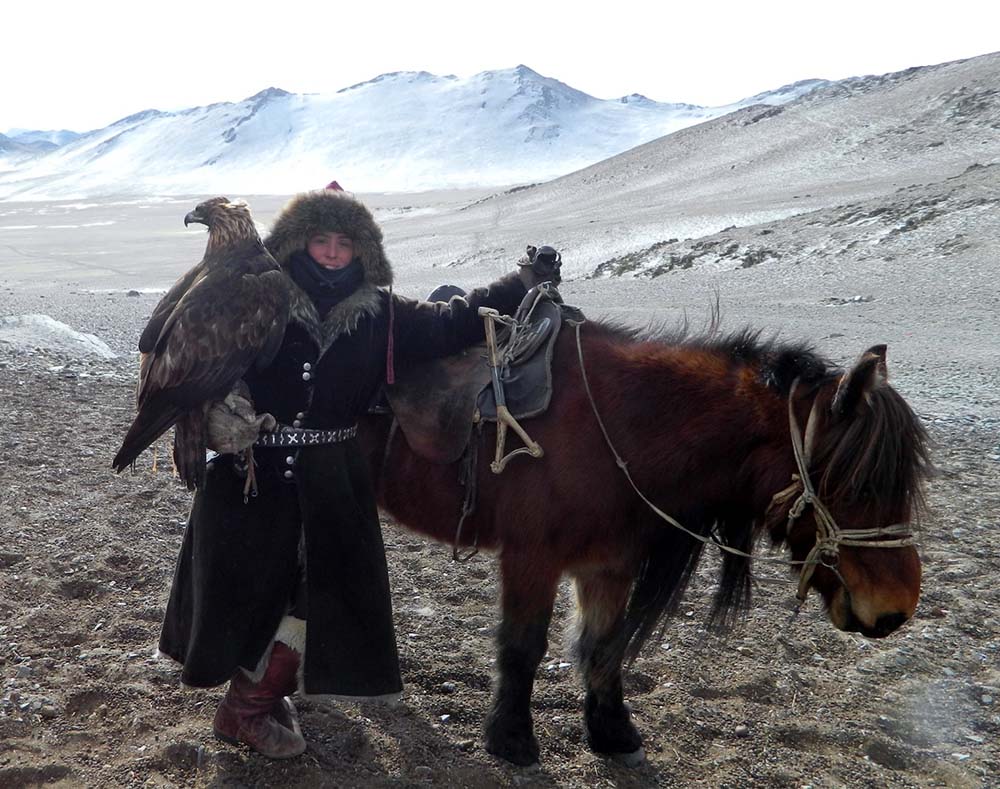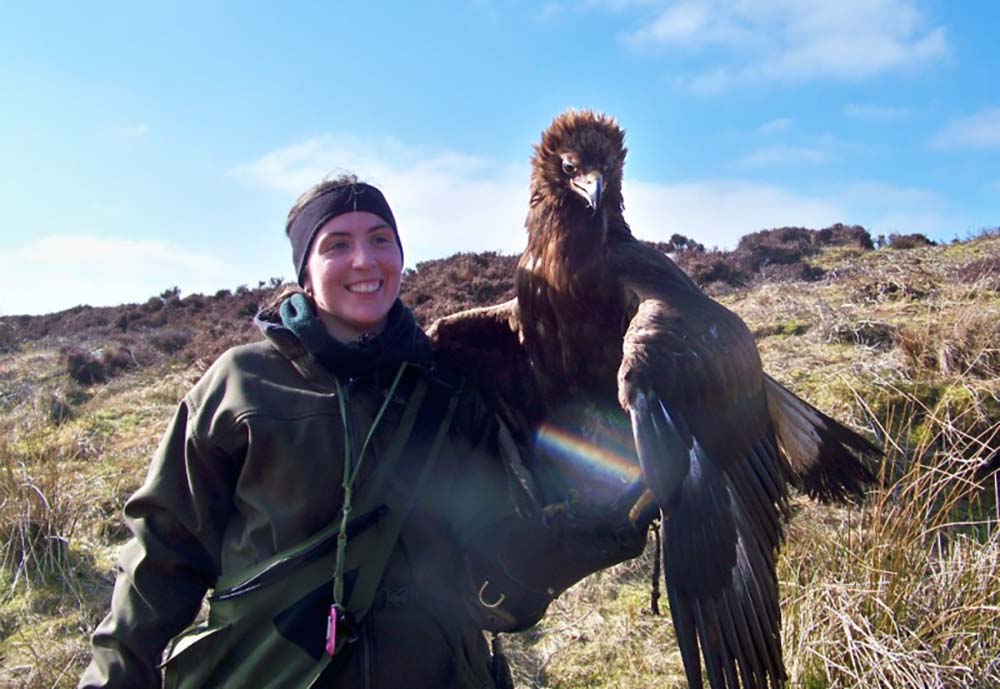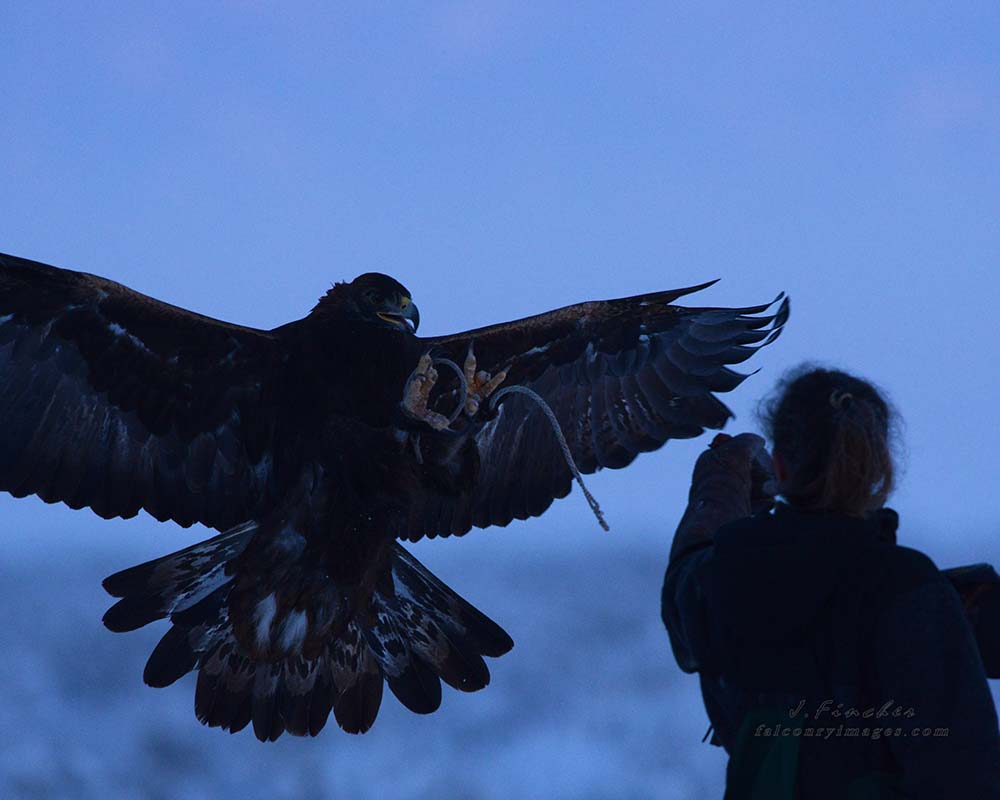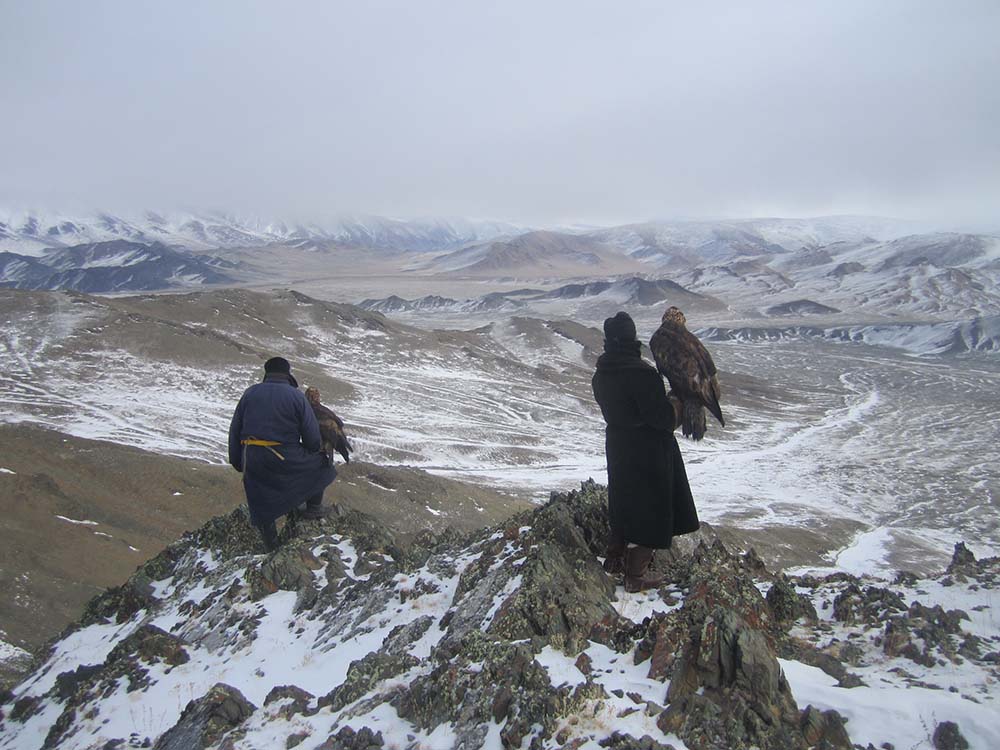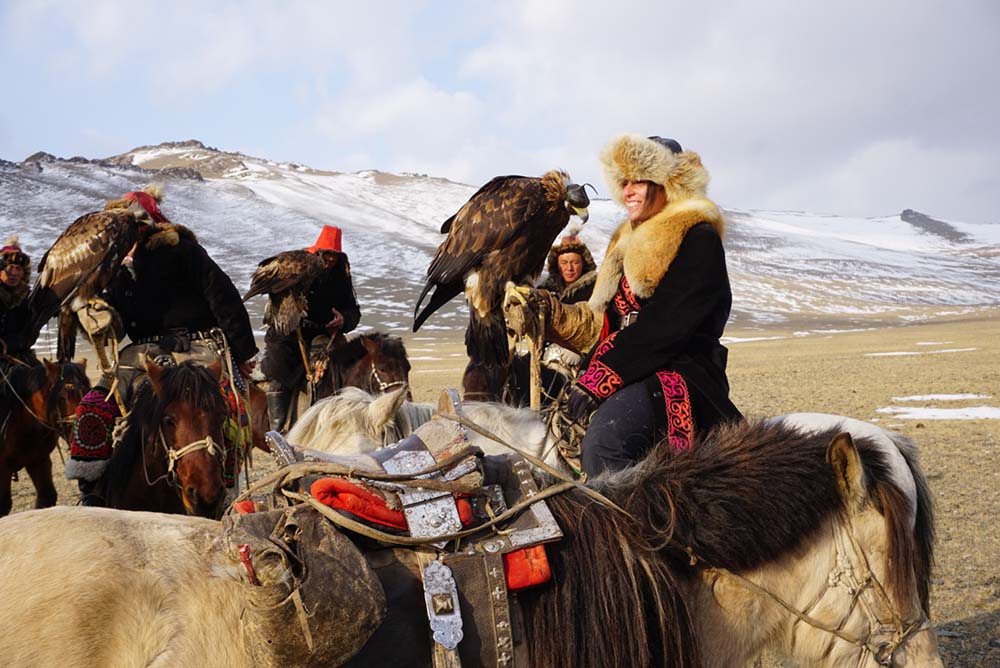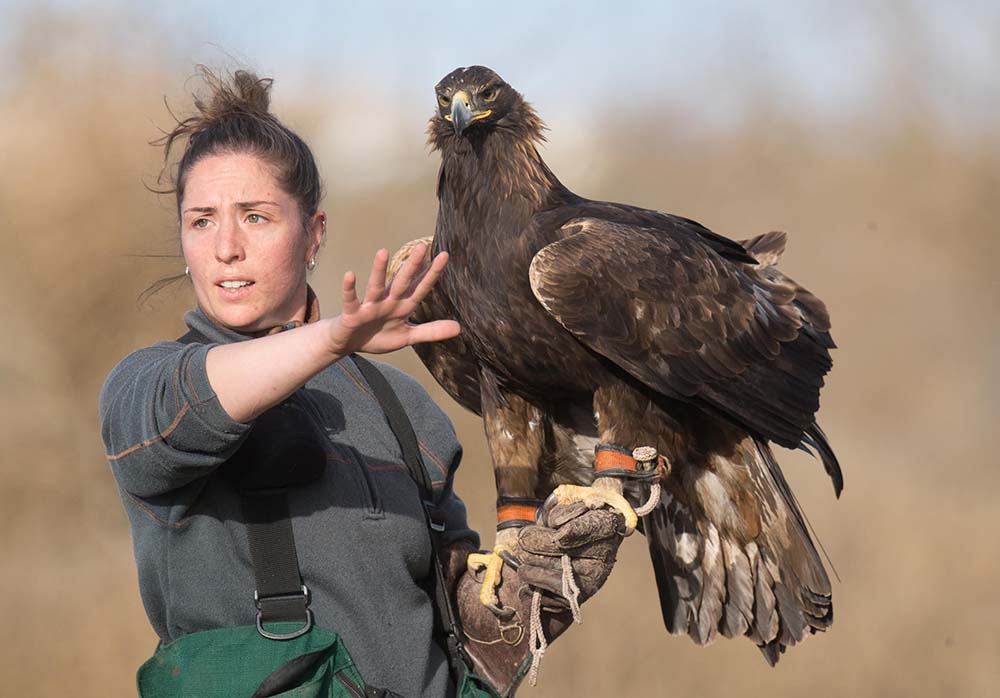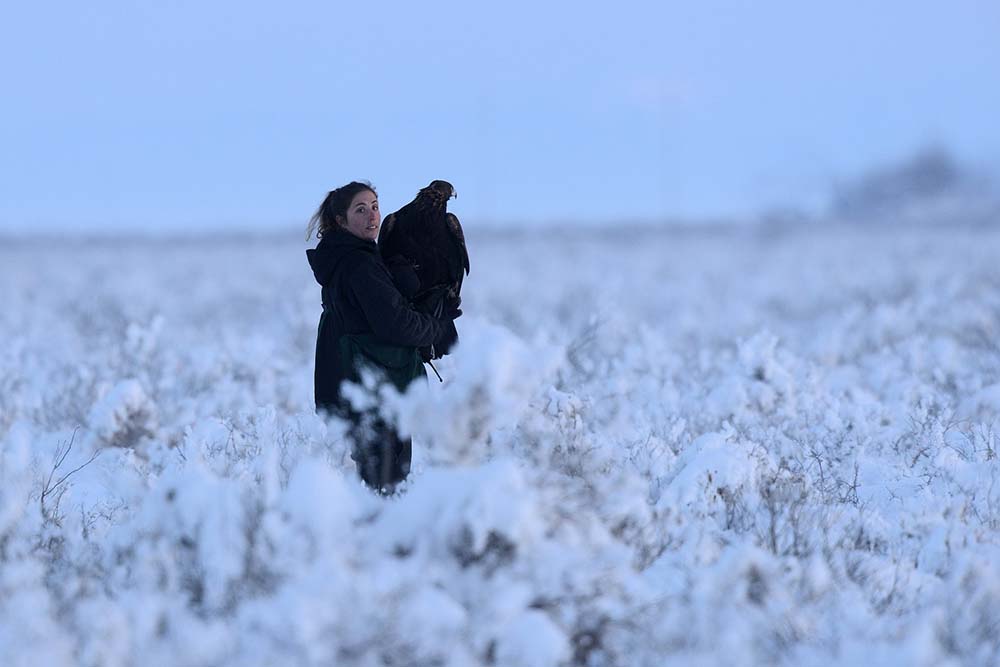Falconry is often thought of as the extinct hobby of medieval knights, yet hunting with birds of prey thrives in the state.
Lauren McGough, an Oklahoma City native and a licensed, practicing falconer since age 14, describes the sport as a sort of destiny.
“As a kid, I was always fascinated by birds of prey – eagles in particular – and longed to interact with them,” she says. “To me, they were these incredible, feathered dragons.”
Starting out, McGough says watching them in the wild was too removed, and she wasn’t sure how to nurture her interest.
“I had no idea [falconry] was something that could even be practiced today,” says McGough, who stumbled across a book about falconry in her local library and was immediately captivated. “I knew I had to do it. I had to be a falconer.”
She wrote the book’s author, Steve Bodio, a letter, and “he wrote me back,” she says. “He was in the middle of a trip to Mongolia then. He was one of the first western falconers to go there to experience Mongolian eagle hunting off horseback, and he sparked my interest in that spectacular niche of falconry that I would later pursue as a Fulbright scholar.
“I hit the ground running, finding a wonderful mentor and master falconer in Oklahoma named Robert Rainey. He helped me trap my first red-tailed hawk in 2001, and I never looked back.”
Falcons, hawks, eagles and owls are essential elements of Oklahoma wildlife. The competent falconer takes care to follow sound conservation principles in the pursuit of the sport, which is highly regulated in the state.
“Prospective falconers have to find a mentor, pass a written test on raptor husbandry and falconry techniques and build a state-inspected mews – also called an aviary – for any raptors that will be kept in order to obtain a permit to be a practicing falconer,” McGough says. “They are not pets.”
Falconry is both a sport and an art, the social anthropologist says.
“Several things make it lean towards an art,” McGough says. “Your task as a falconer is to convince a wild bird of prey, through your own ingenuity, to be your hunting partner. A falcon, hawk or eagle doesn’t need you, or particularly want to be around you, so it takes a lot of patience and nuance to cultivate a positive relationship with a raptor.
“The hunting aspect gives it qualities of a sport. At the end of the day, you aim to have a heavy game bag, a rabbit or a duck or a pheasant for example, that you can use to feed both your hawk and yourself.”
Although her first hunting partner was a falcon, McGough says her passion has morphed into helping ill or wounded eagles get their hunting mojo back.
“The last 13 years, I’ve focused on flying eagles, which is probably the most male-dominated niche within the wider practice of falconry,” McGough says. “But even there it is changing – I’ve been mentoring another woman who is training and hunting with her first golden eagle.”
McGough, who describes herself as “fairy nomadic,” still considers OKC her homebase. She recently finished up her doctorate at the University of Saint Andrews in Scotland and is spending this year writing a book about eagles.
“Once it’s sold and published,” she says, “I’m not sure what the future has in store.”
Whether male or female, all falconers share a common awe, McGough says.
“It doesn’t matter our gender, profession, socioeconomic background … we are all equally enthralled with watching a bird of prey fly in pursuit of game.”






















